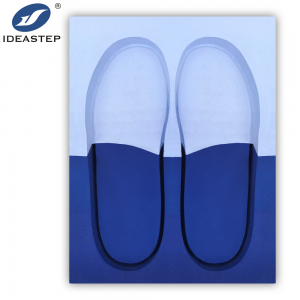
The difference between custom-made insoles and regular or over-the-counter (OTC) insoles lies primarily in their level of customization and individualized fit. Here are the key distinctions:
1. Customization
Custom-made insoles are specifically designed for an individual’s feet, taking into account their unique foot shape, arch type, biomechanics, and any specific foot conditions or issues they may have. They are made based on a podiatrist’s prescription or through advanced technology like 3D scanning or casting to ensure precise fit and support. Regular insoles, on the other hand, are mass-produced with generic shapes and sizes intended to provide general support.
2. Fit
Custom-made insoles offer a superior fit since they are tailored to match the exact contours of an individual’s feet. They provide better alignment by addressing specific anatomical variations. Such as high arches or flat feet while ensuring proper distribution of pressure across the footbed. In contrast, regular insoles offer a one-size-fits-all approach that may not accommodate various foot types adequately.
3. Support
Custom-made insoles can provide targeted support based on each person’s unique needs. Podiatrists can incorporate features like variable arch heights, metatarsal pads, heel cups, wedges, or specialized materials to address specific conditions such as plantar fasciitis or excessive pronation/supination accurately. Regular off-the-shelf insoles generally offer more generalized support without personalized adjustments.
4. Materials and Durability
While both custom-made and regular insoles come available with different material options (such as foam or gel). Custom orthotics often use higher quality materials that tend to be more durable and long-lasting due to their purpose-built nature compared to mass-produced OTC alternatives.
5. Costs
Generally speaking, custom-made orthotics tend to be more expensive than regular off-the-shelf options due to factors like professional consultation fees (if required) and the manufacturing process involved. OTC insoles are typically more affordable but may not provide the same level of individualized support and customization.
It’s important to note that while custom-made insoles offer significant benefits for those with specific foot issues or conditions. Regular insoles can still be a suitable option for individuals without any major foot concerns or who require minor additional cushioning. Ultimately, it is advisable to consult with a podiatrist or healthcare professional to determine which type of insole would best meet your needs.
Expand more related content: https://www.aideastep.com/custom-orthotic/.
